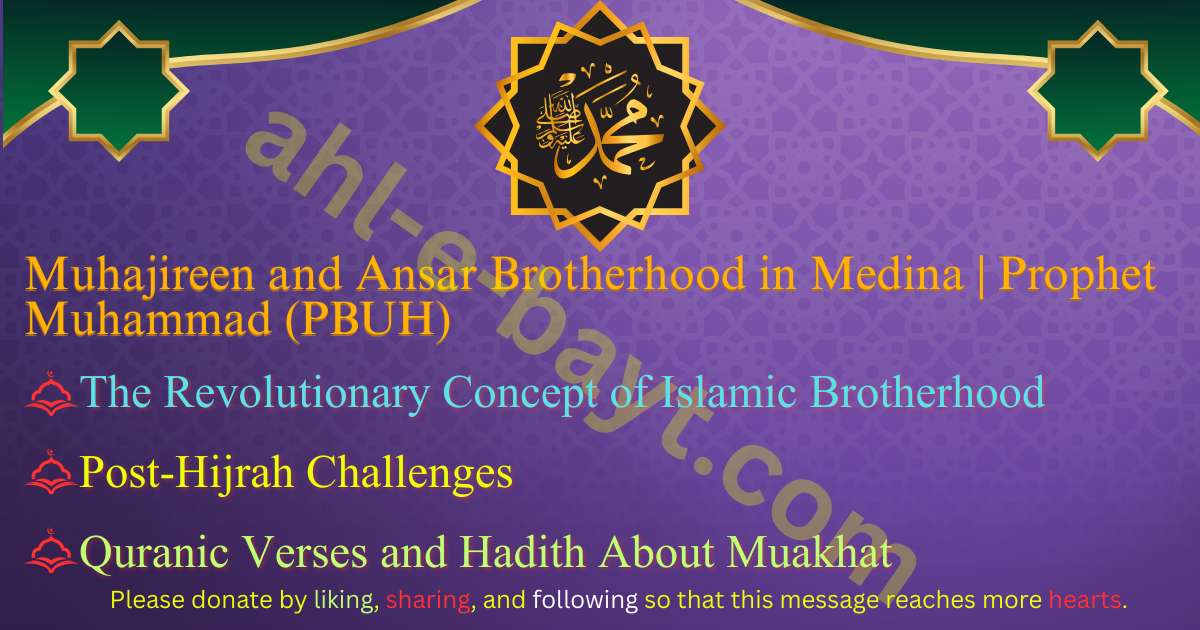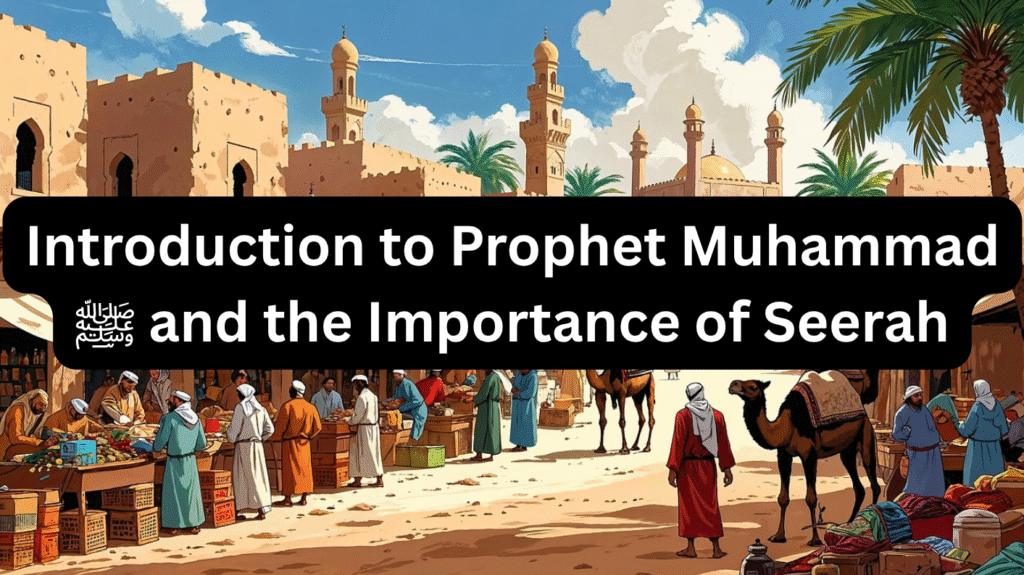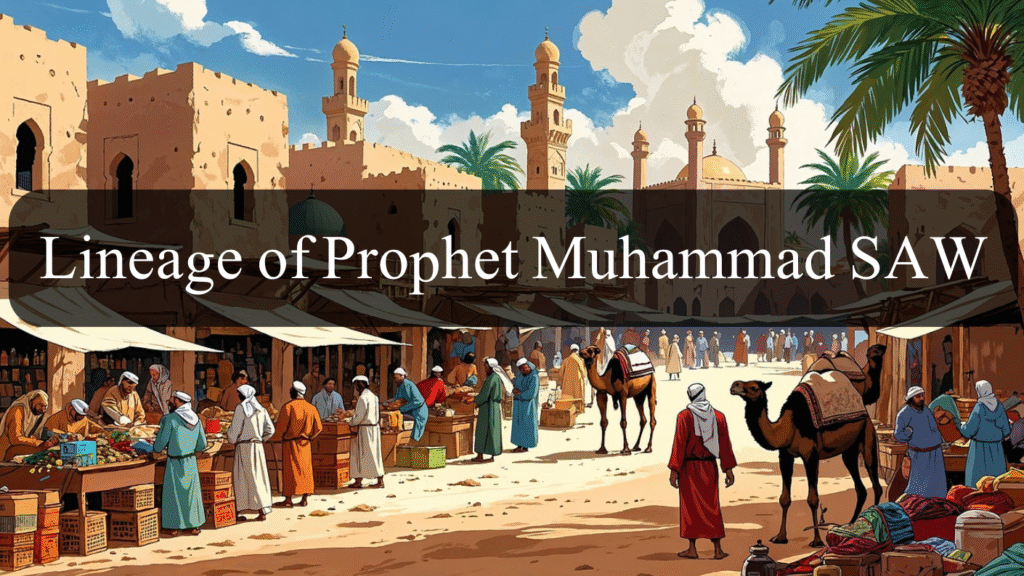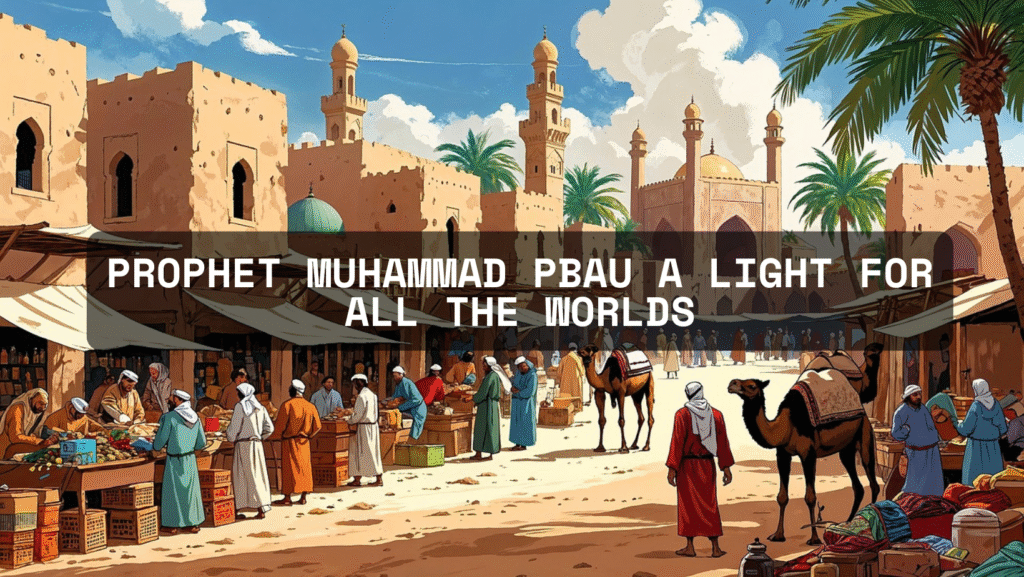Introduction: Muhajireen Ansar Brotherhood
When Prophet Muhammad (PBUH) established the brotherhood between Muhajireen and Ansar in Medina, it was not merely a social agreement but a revolutionary concept of Islamic brotherhood. Muhajireen Ansar Brotherhood was actually that magnificent act that not only transformed the social structure of Medina but established a living example of brotherhood and equality for all humanity. This unique initiative redefined social relationships and created a model of community living that continues to inspire generations.
Historical Background: Post-Hijrah Challenges
When the Muhajireen migrated from Mecca to Medina, they faced enormous economic and social challenges. The Muhajireen had left everything behind in Mecca, while the Ansar had limited resources. In such circumstances, Prophet Muhammad (PBUH) established Muhajireen Ansar Brotherhood, which not only solved economic problems but laid the foundation of a society where brotherhood and equality received the highest importance. The situation demanded immediate action as the Muhajireen were without homes, livelihoods, or social support in their new environment.
The Ceremony of Muakhat: A Revolutionary Step
Prophet Muhammad (PBUH) organized a ceremony in Masjid an-Nabawi where bonds of brotherhood were established between Muhajireen and Ansar. This ceremony represented:
90 Pairs Formed: 45 pairs of brothers between Muhajireen and Ansar
Rights and Responsibilities: Clear determination of rights and obligations for both parties
Economic Cooperation: Ansar shared everything they had with their Muhajir brothers
Emotional Connection: Bonds of hearts were established beyond material relationships
This ceremony wasn’t just symbolic; it involved practical commitments where each Ansari took specific responsibility for his Muhajir brother’s welfare, including housing, financial support, and emotional companionship.
Magnificent Examples of Brotherhood
Muhajireen Ansar Brotherhood produced several magnificent examples written in golden letters in history:
Abdur Rahman bin Auf and Sa’ad bin Rabi:
Sa’ad bin Rabi offered his Muhajir brother:
“Take half of my wealth and choose one of my two wives”
Abdur Rahman bin Auf responded:
“May Allah bless your wealth and your wives, just show me the way to the market”
Abu Bakr Siddiq and Harith bin Khazimah:
Harith bin Khazimah handed over his entire house and business to Abu Bakr Siddiq without hesitation
Other Notable Pairs:
Umar bin Khattab with Itban bin Malik
Uthman bin Affan with Aus bin Thabit
Ali bin Abi Talib with Abu Ayyub Ansari
These examples demonstrate the extraordinary level of sacrifice and commitment that characterized this brotherhood.
Quranic Verses and Hadith About Muakhat
The Quran clearly mentions the greatness of Muhajireen Ansar Brotherhood:
Surah Al-Hashr (59:9):
“وَالَّذِينَ تَبَوَّءُوا الدَّارَ وَالْإِيمَانَ مِن قَبْلِهِمْ يُحِبُّونَ مَنْ هَاجَرَ إِلَيْهِمْ وَلَا يَجِدُونَ فِي صُدُورِهِمْ حَاجَةً مِّمَّا أُوتُوا وَيُؤْثِرُونَ عَلَىٰ أَنفُسِهِمْ وَلَوْ كَانَ بِهِمْ خَصَاصَةٌ”
Translation: “And those who, before them, had homes (in Medina) and had adopted the Faith, show their affection to such as came to them for refuge, and entertain no desire in their hearts for things given to the (latter), but give them preference over themselves, even though poverty was their (own lot).”
Prophetic Traditions:
The Prophet (PBUH) said: “None of you truly believes until he loves for his brother what he loves for himself” (Sahih al-Bukhari)
“The believers in their mutual kindness, compassion, and sympathy are just like one body. When one of the limbs suffers, the whole body responds to it with wakefulness and fever” (Sahih Muslim)
Economic Impacts of Muakhat
Muhajireen Ansar Brotherhood had far-reaching economic impacts:
Economic Self-Sufficiency: Muhajireen quickly became economically self-reliant
Business Partnerships: Business partnerships established between both groups
Agricultural Reforms: Promotion of modern agricultural methods
Trade Network: Establishment of international trade relations
Wealth Distribution: Effective redistribution of resources
Skill Development: Transfer of skills and knowledge
Market Development: Establishment of new markets and trade routes
The economic system established through this brotherhood became a model for Islamic economics, emphasizing fair distribution, mutual cooperation, and social welfare.
Social and Cultural Impacts
Muhajireen Ansar Brotherhood had profound social and cultural impacts:
Cultural Harmony: Beautiful blend of different cultures
Social Justice: Equal rights for all social classes
Educational Progress: Promotion of knowledge and wisdom
Moral Training: Development of high moral values
Social Cohesion: Strengthened community bonds
Inter-tribal Unity: Breakdown of tribal prejudices
Community Welfare: Collective responsibility for social welfare
This brotherhood transformed Medina from a city divided by tribal conflicts into a unified community based on faith and mutual respect.
Political and Administrative Impacts
The establishment of brotherhood had significant political implications:
Political Unity: Created a unified Muslim community
Administrative Structure: Established a model of Islamic governance
Conflict Resolution: Provided mechanism for dispute resolution
Social Security: Created a comprehensive social security system
Community Leadership: Developed new leadership patterns
This political transformation made Medina capable of facing external challenges and establishing a successful Islamic state.
Modern Relevance and Lessons
Muhajireen Ansar Brotherhood remains relevant today:
For Contemporary Society:
Intercommunity Relations: Model for intercommunity harmony
Refugee Support: Framework for supporting migrants and refugees
Social Welfare: Blueprint for social welfare systems
Economic Justice: Model for economic cooperation
Conflict Resolution: Approach for resolving social conflicts
For Muslim Communities:
Unity and Brotherhood: Importance of maintaining unity
Social Responsibility: Collective responsibility for community welfare
Economic Cooperation: Need for mutual economic support
Cultural Integration: Value of cultural harmony
Spiritual Development: Role of brotherhood in spiritual growth
Implementation in Modern Context
The principles of Muhajireen Ansar Brotherhood can be implemented today through:
Community Programs: Establishing brotherhood programs in communities
Economic Initiatives: Creating mutual support economic systems
Educational Programs: Teaching values of brotherhood and unity
Social Services: Developing community-based social services
Interfaith Dialogue: Promoting understanding between different groups
Challenges and Solutions
Implementing this model today faces challenges:
Materialism: Overcoming materialistic attitudes
Individualism: Addressing excessive individualism
Social Divisions: Bridging social and economic divisions
Cultural Barriers: Overcoming cultural and ethnic prejudices
Implementation: Developing practical implementation strategies
Solutions include religious education, community building, economic reforms, and social programs that promote Islamic values of brotherhood.
Conclusion: Eternal Lessons
Muhajireen Ansar Brotherhood provides eternal lessons for humanity:
Power of Unity: Strength comes through unity and brotherhood
Social Justice: Importance of economic and social justice
Divine Guidance: Success comes through following divine guidance
Human Dignity: Every human deserves dignity and respect
Eternal Values: Islamic values are relevant for all times
This brotherhood remains a shining example of how faith can transform society and create bonds stronger than blood relationships.
Final Prayer
“O Allah! Make us among those who listen to the word and follow the best thereof, make us among those who follow the Sunnah of Your Noble Prophet, and admit us into Your vast mercy.”
Sources and References:
Sahih al-Bukhari (Book of Brotherhood)
Sahih Muslim (Book of Brotherhood)
Sirat Ibn Hisham
Tarikh al-Tabari
Al-Raheeq Al-Makhtum
Zad Al-Ma’ad
Al-Tabaqat al-Kubra
Al-Bidayah wa al-Nihayah





